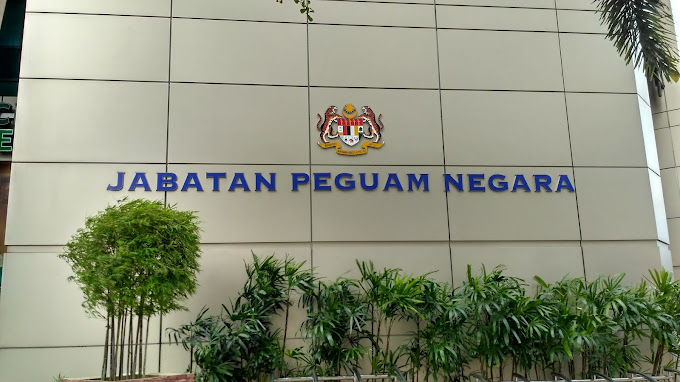OPINION
Attorney General – Neither Blood Hound nor Poodle


By Chan Kok Keong
- To the public, the Attorney General (“AG”) is the government lawyer who prosecutes in high profile cases. So can the Solicitor General who is the deputy Attorney General. In ordinary criminal cases, the public is familiar with the DPPs or Deputy Public Prosecutors. They are the lawyers in the AG’s Chambers who have been delegated the power to prosecute on behalf of the AG who is the nation’s Public Prosecutor.
- Apart from the DPPs, there are also those law officers who appear as Federal Counsel in civil cases. Within the department are also found lawyers who do not go to court but are draftsmen or who may be seconded to other Ministries as legal advisors. And in each state such as Perak or Kelantan, there is a State Legal Advisor in an office staffed by lawyers doing criminal and civil cases. However, in Sabah and Sarawak which operates a Cabinet system, they are also called Attorney-Generals.
- Other than his prosecutorial function, the AG is also the chief legal adviser to the government in all legal matters. Under the constitution, he also advises the Yang Di Pertuan Agong (‘the Agong”) although his appointment is by the Prime Minister under Article 145 of the Constitution. In practice, he also advises Parliament and he has acted against Judges as happened during the 1988 tribunals which removed the Lord President and two Supreme Court Judges. Ironically, the AG also represents Judges who are sued in our courts!
- Under the Constitution the AG is firstly, adviser to the Agong and government in all legal matters, and secondly as the head of prosecution. His third role as the guardian of the public interest was recognised by the Judges in the development of the common law.
- The AG is appointed under Article 145. His “client” the Agong is an office or position created by the Constitution. His other “client” the Federal and State governments are similarly entities created by the Constitution. His role as guardian of the public interest is a duty to enforce the law, generally speaking, on behalf of the public.
- In Article 4 of the Constitution, it is stated that ” “This Constitution is the supreme law of the Federation and any law passed after Merdeka Day which is inconsistent with this Constitution shall, to the extent of the inconsistency, be void. Under Article 39 of the Constitution, the executive authority shall be vested in the Agong but exercised by the Cabinet or any Minister so authorised.
- In a word, the Agong is the source of all authority and all Bills passed in Parliament only become law after his assent. The AG being adviser to the Agong and the government ensures that all their actions and decisions are not only in conformity with the constitution but are in keeping with the core values of the Constitution such as the rule of law, democracy and sovereignty. Written into the Constitution are also the guarantees of fundamental liberties, federal-state relations and all the workings of government including the distribution of power. And more subjects such as citizenship and protection for public servants!
- The AG has been described as the keeper of the conscience of the nation. If one refers again to core values, this will also certainly include the principles of The Rukun Negara. And so the qualities of an ideal AG would include not just a good grasp of the law but he should also be a strong commitment to defending the Constitution and protecting the nation against short term interests of the government which appointed him.
- Experience of having been a Judge and Prosecutor may be qualities that are useful to an AG but they are not the only prime considerations. By reason of being legal advisor to the apex of political or governmental leadership, he cannot help but also be a political creature. At the same time, he has to be aloof enough to proffer advice which not only keeps the government in check but he must be conscious that there are higher principles well above the hurly burly of party politics.
- Most importantly, his power to prosecute should never be used to crush political opponents. Although not stated in the Constitution, his loyalty is also to the people who have entrusted to him the sacred duty of advising the sovereign! The AG should not be a blood hound for the Prime Minister who appoints him under Article 145 of the Constitution. Neither should he be seen to be his poodle. The two extremes are unacceptable in a country which aspires to liberty, equality and the practice of parliamentary democracy.
- One would find it difficult to disagree with the conclusion of JLJ Edwards in his seminal book “The Attorney General, Politics and the Public Interest” that ultimately the key to the ideal AG would rest upon his strength of character, personal integrity and depth of commitment to the principles of independence and the impartial representation of the public interest. In the context of Malaysia, the AG must also be one who is deeply passionate towards upholding the Constitution and the Rukunegara.
“Chan Kok Keong is an Advocate and Solicitor who has a passion for language, history and in particular the constitutional history of Malaysia. Deeply committed to the idea of constitutional supremacy, it is his fervent hope that Malaysians will study, learn and cherish the principles behind the founding of the nation and the making of the Constitution.”


